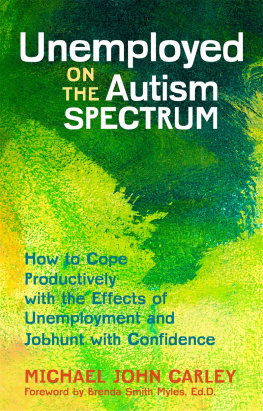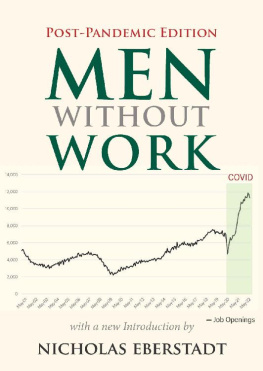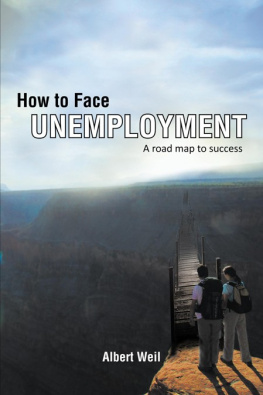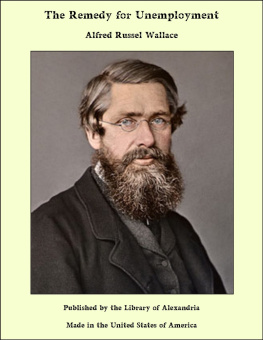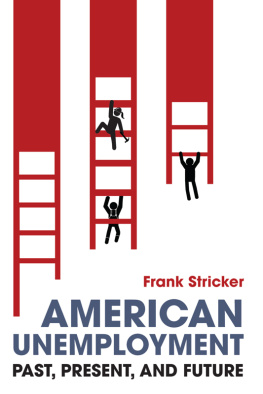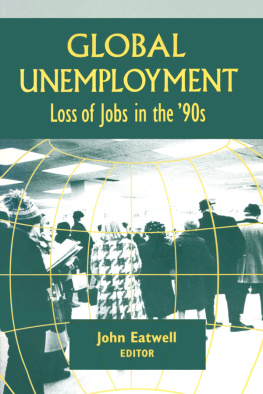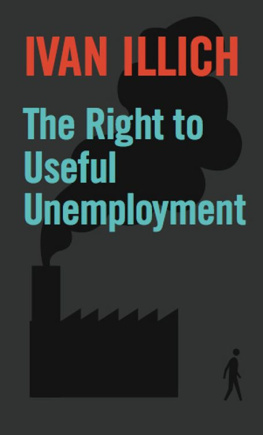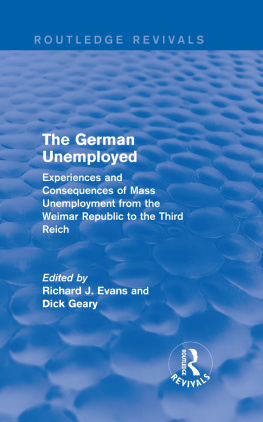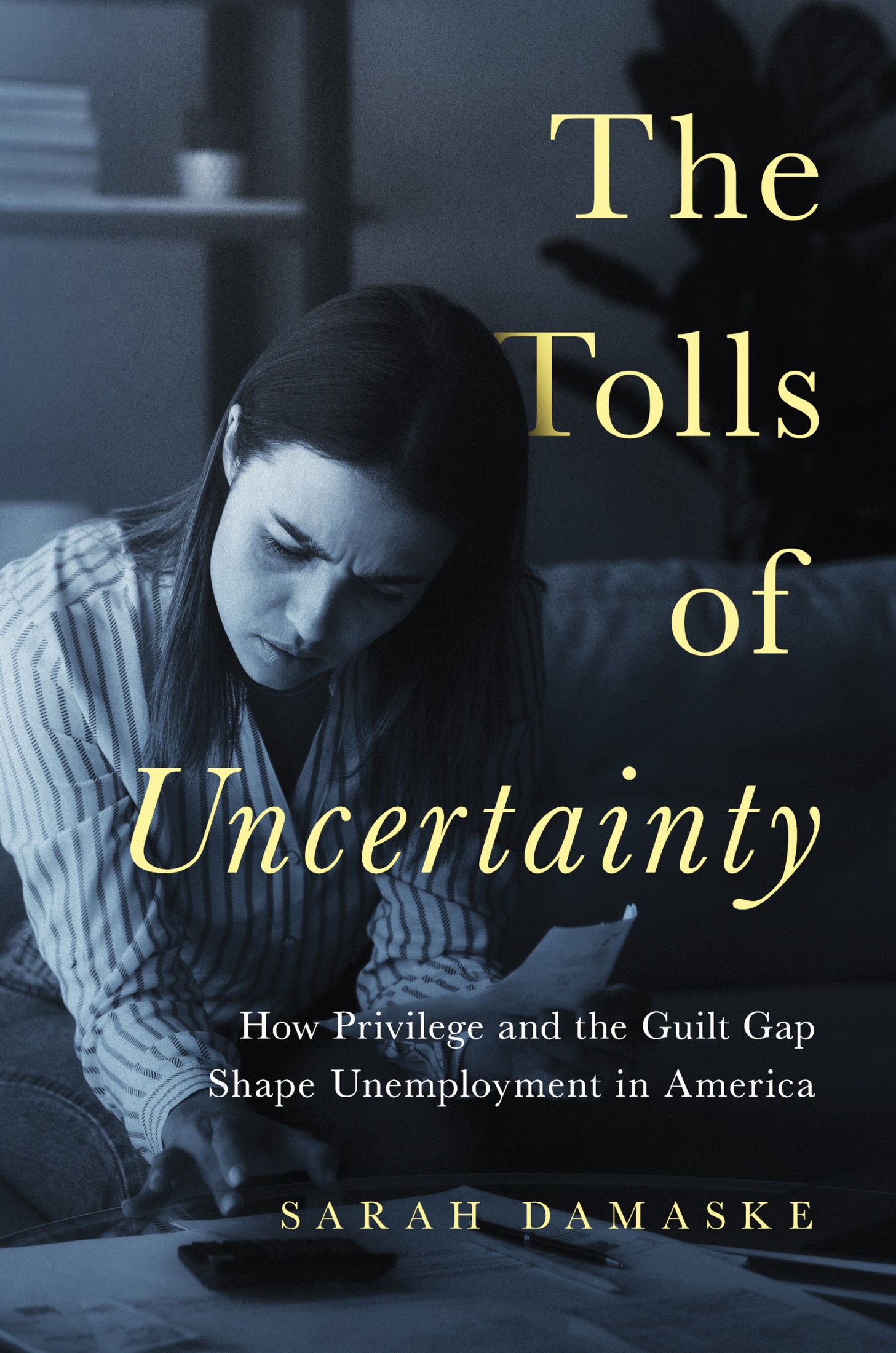THE TOLLS OF UNCERTAINTY
The Tolls of Uncertainty
HOW PRIVILEGE AND THE GUILT GAP SHAPE UNEMPLOYMENT IN AMERICA
SARAH DAMASKE
PRINCETON UNIVERSITY PRESS
PRINCETON & OXFORD
Copyright 2021 by Princeton University Press
Princeton University Press is committed to the protection of copyright and the intellectual property our authors entrust to us. Copyright promotes the progress and integrity of knowledge. Thank you for supporting free speech and the global exchange of ideas by purchasing an authorized edition of this book. If you wish to reproduce or distribute any part of it in any form, please obtain permission.
Requests for permission to reproduce material from this work should be sent to
Published by Princeton University Press
41 William Street, Princeton, New Jersey 08540
6 Oxford Street, Woodstock, Oxfordshire OX20 1TR
press.princeton.edu
All Rights Reserved
Library of Congress Cataloging-in-Publication Data
Names: Damaske, Sarah, author.
Title: The tolls of uncertainty : how privilege and the guilt gap shape unemployment in America / Sarah Damaske.
Description: Princeton : Princeton University Press, [2021] | Includes bibliographical references and index.
Identifiers: LCCN 2020046926 (print) | LCCN 2020046927 (ebook) | ISBN 9780691200149 (hardback) | ISBN 9780691219318 (e-book)
Subjects: LCSH: UnemploymentUnited States. | Discrimination in employmentUnited States. | UnemployedMental healthUnited States.
Classification: LCC HD5724 .D323 2021 (print) | LCC HD5724 (ebook) | DDC 331.13/70973dc23
LC record available at https://lccn.loc.gov/2020046926
LC ebook record available at https://lccn.loc.gov/2020046927
Version 1.0
British Library Cataloging-in-Publication Data is available
Editorial: Meagan Levinson, Jacqueline Delaney
Production Editorial: Elizabeth Byrd
Jacket Design: Karl Spurzem
Production: Erin Suydam
Publicity: Maria Whelan, Kathryn Stevens
Jacket image by Aleksandr Davydov / Alamy Stock Photo
For Stephen Knapp, who taught me The Definition of Possible,
and
to Paul Damaske, who still makes me mix tapes
PREFACE
MY FIRST semester of college was my introduction to Dorothea Langes photographs of the unemployed and their families during the Great Depression. In many ways, I could not have been further removed from the people in her photographs, sitting, as I was, in a small class of twenty students in an old stone building on a picturesque campus set on top of a hill. In this class, an introduction to the liberal arts, we listened to Mozart, read about Lincoln at Gettysburg, considered philosophical debates about knowledge, and examined a book of Dorothea Langes photographs. The contrast felt stark to me as we sat in those elite halls, where I did not feel quite at home, examining her portraits of people living in poverty nearly a century before.
Lange is probably best known for a portrait called Migrant Mother that appeared in the book. In Langes time, migrant referred to someone who had moved across the United States to find work and earn money; it was not an immigrant from another country, as we might think today. A woman with furrowed brow, lines etched into the corners around her mouth and eyes, has one hand cupping her face, as if she were about to rest her chin on it; her eyes look bleakly out into the distance. She has a baby in her arms and a child on either side, snuggled into her. We cannot see their faces, only the dirt and grime that cover their clothes. Langes notes on the photographs of the mother and her children explain that the family is destitute and living in a squatters camp, having sold their car tires to pay for food that morning.
Lange understood the power of her photographs. She wanted her work to effect change, particularly after her marriage to social scientist Paul Taylor, who shared her passion for documenting American society and for bringing attention to those without a voice. I did not need to read about their shared commitment to social change in the historical essays to have known this as her truth; it is vividly evident in her work.
Other photographs moved me. The picture of the men lined up at the White Angel Breadline in San Francisco, tightly crowded next to one another, waiting for someone to dole out the desperately needed food. Yet one man had turned away, his hat falling forward to cover his eyes and his hands clasped, perhaps in prayer, as he leaned against a wooden fence. The photograph, A Sign of the Times, depicts a womans legs below the knees with tired-looking shoes and nylons worn beyond repair. The nylons have tears that have been mended, but they also have newer rips that have not been fixed.
I yearned to better understand the experiences of precarity faced by so many not so long ago. I was also moved by Langes call for social justice. Her call has guided my research interests in college, graduate school, and today. After I graduated, I set the book aside while I moved to first Boston, then New York, then Houston, then central Pennsylvania, working for a time and then earning first my masters, then my doctorate, and holding first a postdoctoral fellowship and then finally a position on the faculty at Penn State. Yet Langes images always stayed with me. And I still have the book, nearly twenty-five years after I first sat with it in that class in a college on a hill.
When writing my first book, For the Family? How Class and Gender Shape Womens Work, I discovered a pattern of womens employment that had previously been ignoreda pattern that involved womens repeated experience of unemploymentand I knew it was time to rediscover Langes photographs. After that books publication, I began the research that would comprise this one, and I examined the photograph of the Migrant Mother again. This time, I saw that picture with new eyes, wondering who the mother was, who all of the unemployed were, what had brought them to that place, and what happened next. While I could not ask those questions of Langes subjects, I could ask them of the people I set out to meet for this project.
By the time this book is published, I will have spent nearly ten years researching and writing on this topic, in addition to the time I spent studying unemployed women for my first book. I have done so almost a century after Lange started her photographic career and about eighty years after her Farm Security Administration photographs were completed. In the passing years, a lot has changed about unemployment. Yet Langes work still calls out to us from across time. She reminds us that we have an obligation to look and to see the unemployed and to take up her call to action.
THE TOLLS OF UNCERTAINTY
Introduction
NEARLY A HUNDRED years after the Great Depression, I set out to meet people who had recently lost their jobs. One of the people I met was Tracy. In the small rural town in Pennsylvania where Tracy grew up and lives today, jobs have been steadily leaving since before she was born. The first time her dad lost his job was before she could walk; the second was when her youngest sister was born. The last big factory closed when she was in high school; her dad lost his job again then and was unemployed for over a year.
Although the town is surrounded by wide open spaces, the small row houses are tightly nestled against each other, as if huddled against the cold winters and tight times to come. Tracys house was tidy but dimly lit. We sat in the kitchen, which was the warmest room, thanks to the pilot light in the oven. Unlike the other sparer rooms, the kitchen had stockpiles of canned foods, dried goods, and snacks found on sale before Tracy lost her job. A longtime hoarder of preserved food products, Tracy had raided her pantry in recent weeks. There hadnt been money for fresh food in months, and Tracy worried about the weight she was gaining from eating junk food.


